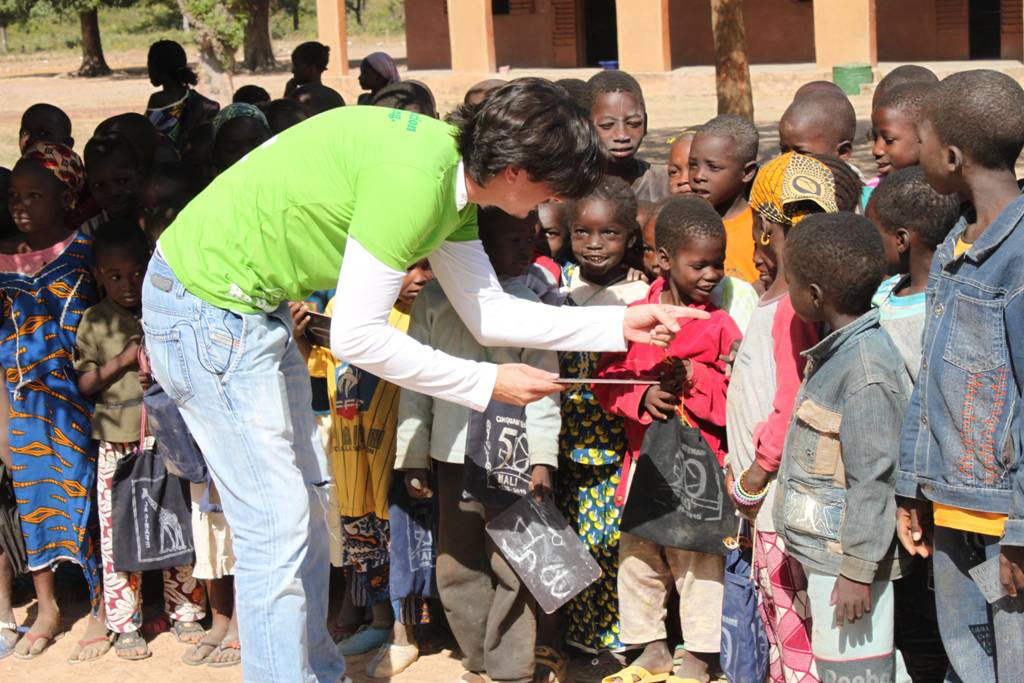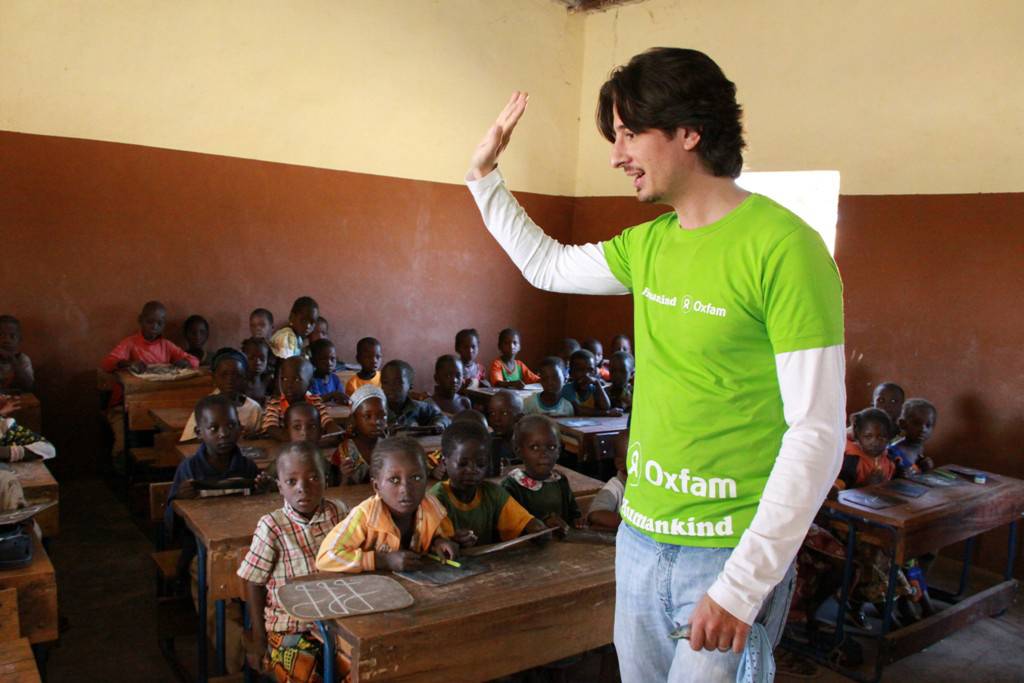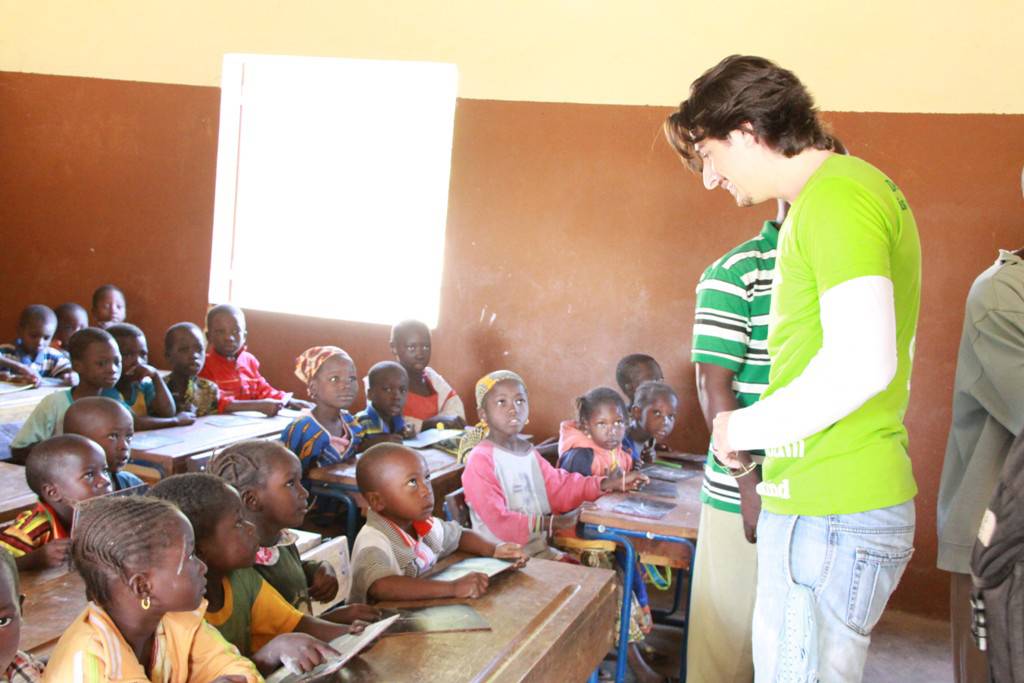Emirati director and Oxfam supporter Ali F. Mostafa has swapped the high-wire drama and cultural mashups of his highly successful City of Life and Classified for a new short video in an entirely different vein: an up close and personal look at one of the most pressing humanitarian challenges in the world today.
The looming food crisis in Africa’s Sahel region, endangering more than 18 million people across Mali, Senegal, Mauritania, Niger, Gambia, Burkina Faso, northern Nigeria and Chad, is the focus of Moustafa’s new video. The one-minute video is one of several Oxfam initiatives to raise awareness and funding in and from the Middle East to help vulnerable populations in the West and Central African nations. Mostafa has also previously supported other Oxfam initiatives. In 2011, he went on a five-day trip to Mali and worked together with Oxfam to support some humanitarian projects aimed at providing basic education to children in Mali.
The Sahel’s vulnerability stems from erratic rainfall, leading to poor food harvests, high food prices and water shortages, exacerbated in some areas by domestic conflict and population displacement. Early warning systems in place across the region earlier this year cautioned that the West and Central Africa nations would face a repeat of previous food crises in 2005, 2008 and 2010, the last of which affected more than 10 million people – those fears are now a reality.
“People in Mali are running out of food – just like those in Niger, Mauritania, Burkina Faso, Senegal and Chad. While the world looks the other way, 18.4 million people are going hungry. Children will die in huge numbers if we don’t act now – and this can be avoided if we are all pulling in the same direction,” said Mostafa, who visited Mali in November 2011 as part of his support to Oxfam.
The director and the aid agency are looking to existing and new government, institutional and corporate donors in the Middle East to commit funds for emergency and relief work, and to individuals in the region to spread awareness and encourage high-level involvement.
Last month, the United Nations Office for the Coordination of Humanitarian Affairs estimated that 18.4 million people in the Sahel are vulnerable to the effects of the food crisis, from more than 713,000 in the Gambia to over 6.4 million in Niger; OCHA also estimated that over US$1.5 billion is needed to address current needs – and only half of that money has been mobilized to date.
Oxfam, the global development and aid agency, must raise at least US$53 million (AED 193 million) urgently to provide life-saving humanitarian aid to 1.2 million people in the Sahel. So far, it has raised one half of its target. “We are at a crucial point for aid to the Sahel,” said Oxfam Chief Executive Barbara Stocking. “For many people, the situation is becoming desperate. It is important to remember that droughts are natural, but hunger is man-made. The Sahel will always suffer from droughts, but need not suffer from hunger if the right actions are taken. It is not too late to respond, but we must act quickly. Delays will not only cost countless lives, it will also cost donors more in the long run.”
Delays and funding shortfalls could result in millions of people without food, clean water and vital assistance. Oxfam operates both emergency intervention and long-term sustainability programmes in the Sahel region, including: in Chad, targeted food distribution, cash for work programmes, agricultural and animal health support; in Burkina Faso, refugee assistance and water, sanitation and hygiene promotion (WASH) campaigns; in Mauritania, vegetable gardens, refugee programmes and water-borne disease eradication; in Niger, cash for work to families in need, restoration of cereal banks and water points; education and water services for refugees and host communities; in Senegal, seed banks, rehabilitation of community wells and farmer support; and in the Gambia, cash transfers for food, seeds and hygiene promotion.
For more information on the Sahel crisis, please visit: http://www.oxfam.org/en/emergencies/sahel-food-crisis.
For take action visit http://www.oxfam.org/en/getinvolved/actnow/sahel2012-yes
The Ali F. Mostafa short video can be viewed at: Ali Mostafa speaks out on behalf of Oxfam on the #Sahel2012 food crisis























